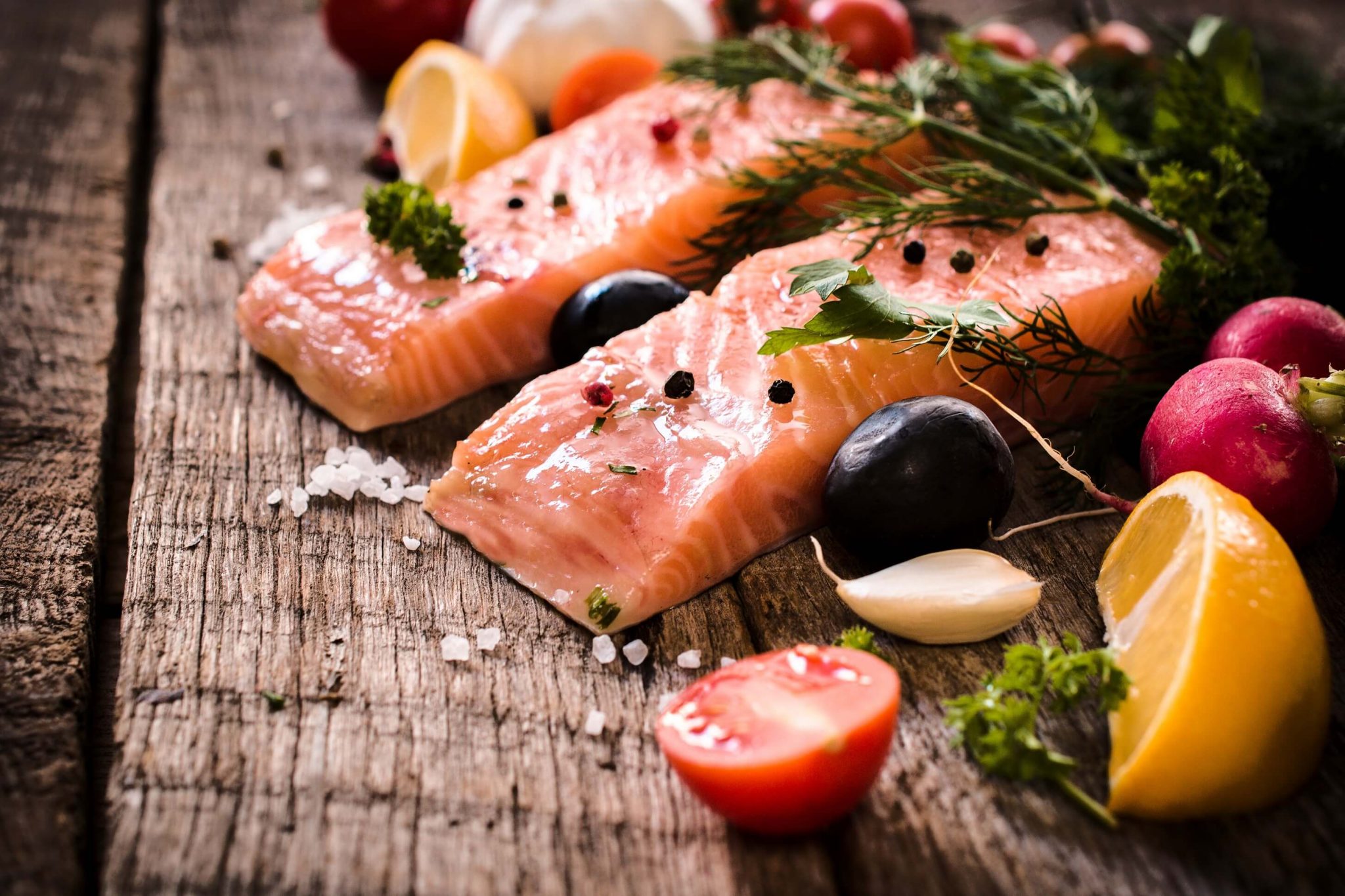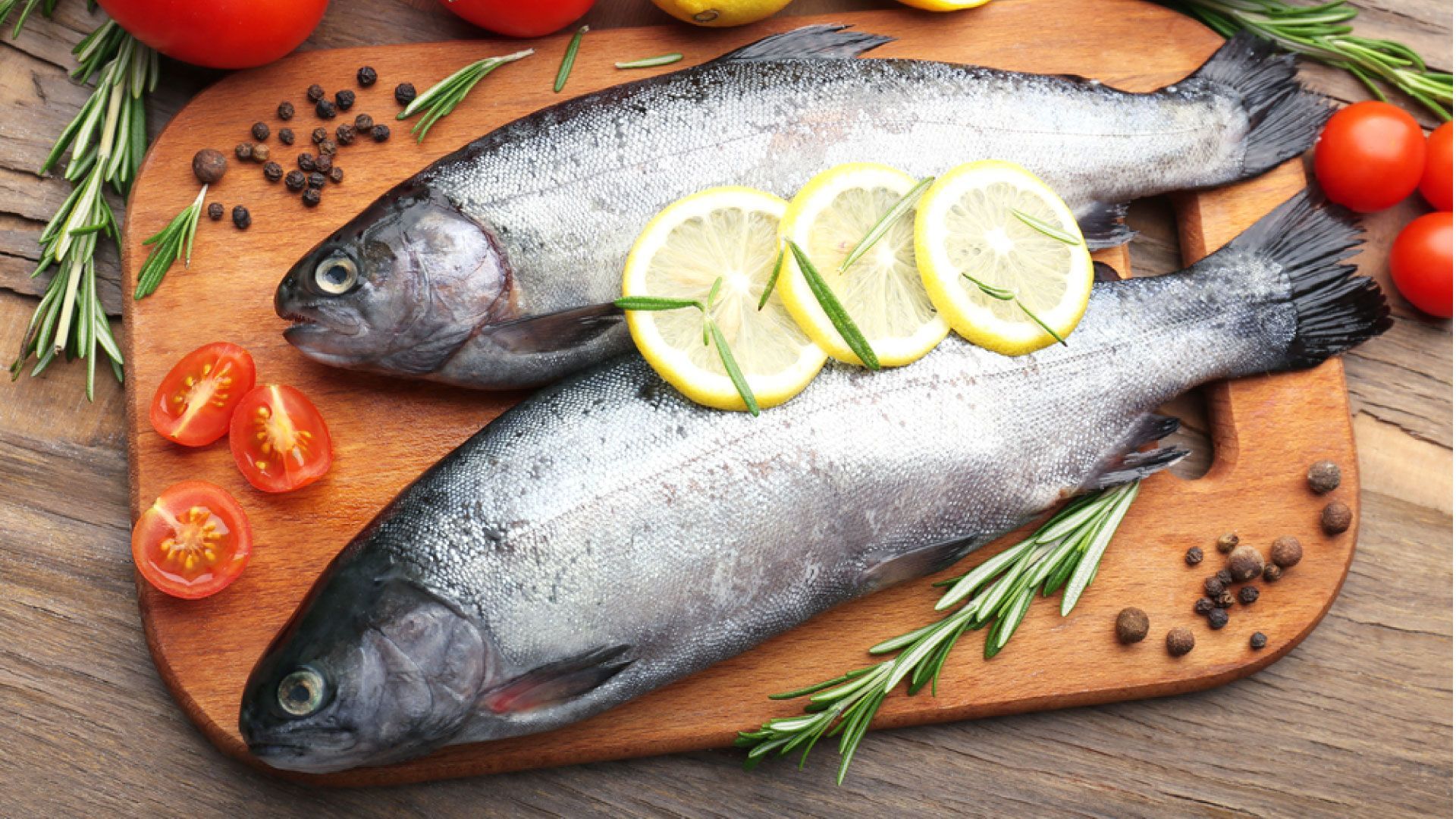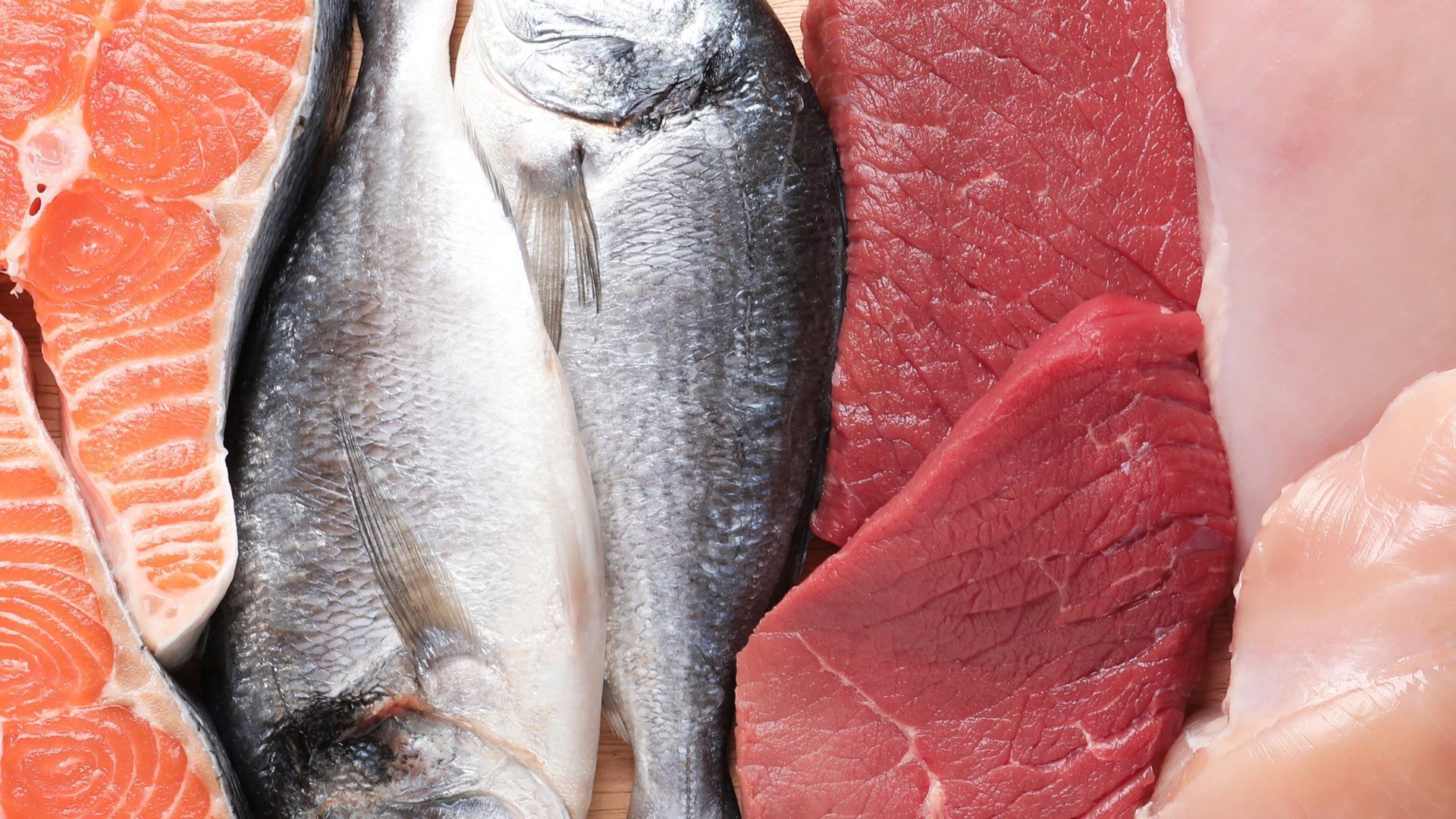Is Fish Considered Meat? A Deep Dive Into The Debate
Let’s cut to the chase, folks: Is fish considered meat? This question has sparked endless debates among religious groups, health enthusiasts, and even foodies. Whether you’re vegan, vegetarian, or just curious about the origins of your seafood, this topic is worth exploring. So, buckle up because we’re about to dive into the murky waters of dietary classification.
Now, you might be thinking, "Why does it even matter?" Well, here’s the deal: for some people, this question carries significant weight, especially when it comes to religious practices, dietary restrictions, and personal beliefs. Fish occupies a unique space in the food chain, and its classification as "meat" or not can have profound implications for those who follow specific guidelines.
Before we jump into the nitty-gritty, let’s set the stage. This article will explore the history, science, and cultural significance of fish in relation to meat. By the end, you’ll have a clearer understanding of why some people say yes, others say no, and why it all depends on perspective. Ready? Let’s get started!
- Sean Omalley Next Fight What To Expect From The Rising Star In The Ufc
- How Many Kids Does Phil Robertson Have Discover The Family Of Duck Dynastys Patriarch
Daftar Isi
Religious Perspectives on Fish and Meat
- Cast Of Everyone Loves Raymond Where Are They Now
- Alice Cooper Net Worth A Deep Dive Into The Wealth Of The Rock Legend
Health Implications of Fish vs. Meat
Environmental Impact of Eating Fish vs. Meat
Cultural Differences in Viewing Fish as Meat
Long-Tail Keywords and Variations
What Exactly Is Meat?
Alright, let’s start with the basics. Meat is generally defined as the flesh of animals that is consumed as food. This includes mammals, birds, and even some insects in certain cultures. But where does fish fit into this equation? Is it meat, or is it something entirely different?
From a scientific standpoint, fish is indeed the flesh of an animal, which technically makes it meat. However, the classification becomes more complex when you consider cultural, religious, and dietary factors. For instance, many vegetarians who avoid land-based animals may still consume fish, blurring the lines between what is and isn’t considered meat.
Here’s the kicker: the definition of meat can vary depending on who you ask. Some people draw a clear line between "land animals" and "sea animals," while others see all animal flesh as equal. This ambiguity is what makes the debate so intriguing.
Is Fish Actually Meat?
Now, let’s tackle the big question: Is fish considered meat? The answer isn’t as straightforward as you might think. In many cultures and religious traditions, fish is often treated differently from other types of meat. For example, during Lent, Catholics are encouraged to abstain from meat but are allowed to eat fish. This distinction highlights the unique position fish holds in dietary practices.
On the flip side, some people argue that fish is meat because it comes from an animal. From a biological perspective, fish are vertebrates, just like cows, pigs, and chickens. So, if we define meat as the flesh of any animal, then fish falls squarely into that category.
But here’s the twist: the perception of fish as meat can vary widely based on individual beliefs and cultural norms. For some, fish represents a healthier, more sustainable alternative to traditional meat. For others, it’s simply a matter of taste and tradition.
Why the Confusion?
The confusion around whether fish is meat often stems from differing definitions and interpretations. Some people focus on the biological classification of animals, while others prioritize cultural or religious practices. Here are a few key points to consider:
- Fish is biologically classified as an animal, making it meat by definition.
- Religious traditions often treat fish differently from other types of meat, especially during fasting periods.
- Many health-conscious individuals view fish as a healthier alternative to red meat, which can influence their perception of it as "non-meat."
Religious Perspectives on Fish and Meat
Religion plays a significant role in shaping how people view fish in relation to meat. For example, in Christianity, fish is often seen as a permissible food during fasting periods, such as Lent. This practice dates back centuries and is rooted in the idea that fish is less "fleshly" than land-based animals.
In Hinduism and Buddhism, many followers practice vegetarianism or consume only fish, believing it to be a less harmful option than eating mammals or birds. Similarly, Jewish dietary laws (kashrut) classify fish as "pareve," meaning it is neither meat nor dairy, allowing it to be consumed with either.
It’s fascinating to see how different religions approach the question of whether fish is meat. While some draw strict lines, others adopt a more flexible interpretation, highlighting the diversity of human belief systems.
Key Religious Views
- Catholicism: Fish is allowed during fasting periods, such as Lent.
- Hinduism: Many Hindus consume fish as a compromise between vegetarianism and meat-eating.
- Judaism: Fish is classified as "pareve" and can be eaten with both meat and dairy.
Health Implications of Fish vs. Meat
When it comes to health, fish and meat are often compared in terms of nutritional value and potential risks. Fish is generally considered a healthier option due to its high omega-3 fatty acid content and lower saturated fat levels compared to red meat. However, this doesn’t necessarily mean it’s not meat—it just means it’s a different type of meat.
Studies have shown that consuming fish can reduce the risk of heart disease, improve brain function, and support overall health. On the other hand, excessive consumption of red meat has been linked to increased risks of cancer, heart disease, and other health issues.
So, while fish may be healthier than some other types of meat, it’s still important to consume it in moderation and as part of a balanced diet. After all, even "healthy" meat can have its downsides if overconsumed.
Nutritional Comparison
- Fish: High in omega-3 fatty acids, low in saturated fat.
- Red Meat: High in protein and iron, but also high in saturated fat.
- Poultry: Leaner than red meat, but still contains more saturated fat than fish.
Environmental Impact of Eating Fish vs. Meat
The environmental impact of consuming fish versus meat is another important consideration. While fish is often touted as a more sustainable option, overfishing and unsustainable fishing practices have raised concerns about its long-term viability. Additionally, the environmental cost of producing red meat, particularly beef, is significantly higher due to factors like deforestation and greenhouse gas emissions.
That said, choosing sustainably sourced fish can help mitigate some of these concerns. Look for certifications like the Marine Stewardship Council (MSC) label to ensure you’re making environmentally friendly choices.
In the end, both fish and meat have environmental implications, but the key is to make informed decisions and consume them responsibly.
Sustainable Choices
- Choose sustainably sourced fish to reduce your environmental footprint.
- Limit red meat consumption to lower greenhouse gas emissions.
- Support local farmers and fishermen to promote sustainable practices.
Cultural Differences in Viewing Fish as Meat
Cultural differences play a significant role in how people perceive fish in relation to meat. In many Asian cultures, fish is a staple food and is often seen as distinct from other types of meat. Similarly, coastal communities around the world have long relied on fish as a primary source of protein, shaping their dietary habits and traditions.
On the other hand, in some Western cultures, fish is often viewed as a luxury or specialty item, rather than a daily staple. This perception can influence how people think about its classification as meat.
Understanding these cultural differences is key to appreciating the complexity of the "is fish meat?" debate. What one culture considers meat, another might see as something entirely different.
Cultural Examples
- In Japan, fish is a central part of the diet and is often eaten raw in dishes like sushi and sashimi.
- In the United States, fish is often consumed in the form of fried fish or seafood dishes, reflecting its status as a treat rather than a staple.
- In Mediterranean countries, fish is celebrated as a healthy and sustainable food choice, often served alongside vegetables and grains.
What Science Has to Say
From a scientific perspective, fish is indeed meat because it is the flesh of an animal. However, the biological classification of fish as a vertebrate doesn’t necessarily settle the debate. After all, science and culture don’t always align when it comes to food.
What science does provide is insight into the nutritional and environmental differences between fish and other types of meat. For example, research has shown that fish is a rich source of essential nutrients, such as omega-3 fatty acids, vitamin D, and protein. These benefits make it a popular choice for health-conscious consumers.
At the end of the day, science can help us understand the composition and impact of fish, but it’s up to individuals and cultures to decide how they classify it.
Key Scientific Findings
- Fish contains high levels of omega-3 fatty acids, which are beneficial for heart health.
- Consuming fish can reduce the risk of chronic diseases, such as diabetes and Alzheimer’s.
- Sustainable fishing practices are crucial for maintaining healthy fish populations and ecosystems.
Long-Tail Keywords and Variations
Throughout this article, we’ve explored various aspects of the "is fish meat?" debate. To ensure we’ve covered all bases, here are some long-tail keywords and variations to consider:
- Is fish considered meat in religion?
- Health benefits of eating fish instead of meat.
- Cultural significance of fish in different countries.
- Environmental impact of consuming fish versus meat.
- Scientific classification of fish as meat.
These variations reflect the diverse angles from which this topic can be approached, ensuring a comprehensive understanding of the issue.
Final Thoughts and Takeaways
So, is fish meat? The answer ultimately depends on your perspective. From a scientific standpoint, fish is indeed meat because it is the flesh of an animal. However, cultural, religious, and dietary factors can influence how people classify it. Whether you see fish as meat or not, one thing is clear: it’s a valuable source of nutrition and an important part of many diets around the world.
As we’ve explored in this article, the debate over fish and meat is complex and multifaceted. It involves considerations of biology, culture, religion, health, and the environment. By understanding these factors, we can make more informed decisions about what we eat and why.
Call to Action
What do you think? Is fish meat, or is it something else entirely? Leave a comment below and let us know your thoughts. And if you enjoyed this article, don’t forget to share it with your friends and family. Together, let’s keep the conversation going and explore the fascinating world of food and culture!



Detail Author:
- Name : Curtis Halvorson
- Username : deshaun23
- Email : nettie19@parker.com
- Birthdate : 2000-09-15
- Address : 208 Evalyn Port Suite 721 Rosemaryland, WA 29424-4270
- Phone : +1 (252) 735-0461
- Company : Lueilwitz Ltd
- Job : Forest Fire Fighter
- Bio : Deserunt quis aut maiores aperiam sunt asperiores. Omnis nesciunt consequatur sed eum et ipsam voluptatibus. Est voluptatibus corporis et nobis est.
Socials
twitter:
- url : https://twitter.com/jjast
- username : jjast
- bio : Excepturi cumque est velit quo et. Alias aperiam deleniti qui temporibus porro. Ipsum quos neque officia aut.
- followers : 5029
- following : 307
facebook:
- url : https://facebook.com/jovanny_id
- username : jovanny_id
- bio : Consectetur iure id temporibus hic et qui.
- followers : 1534
- following : 283
tiktok:
- url : https://tiktok.com/@jovanny_real
- username : jovanny_real
- bio : Beatae fuga est excepturi. Ullam error dicta itaque sit.
- followers : 4034
- following : 2544